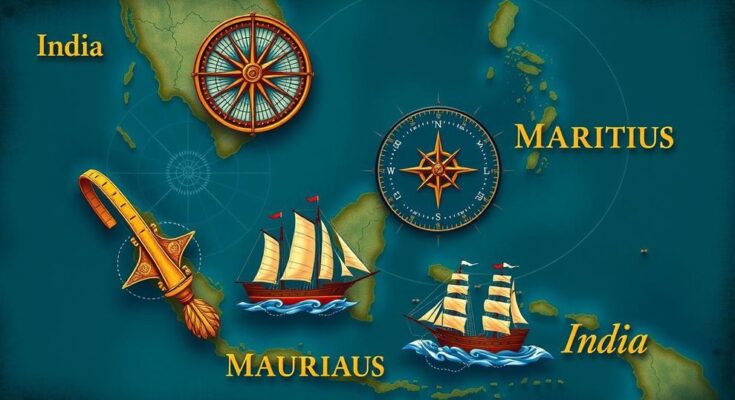Kwang Poon addresses the evolving partnership between India and Mauritius amid rising great power rivalries in the Indian Ocean. He emphasizes urgent local issues over political infrastructure and notes the historical and contemporary influences of powers like France, China, and the US on Mauritius’ strategic role in global trade.
The strategic partnership between India and Mauritius is evolving amidst intensifying great power rivalries in the Indian Ocean. Kwang Poon, a geo-strategist from Mauritius, emphasizes that the urgent issues faced by the island, such as water supply and infrastructure development, overshadow the need for new parliamentary facilities. He points out that while India is enhancing its relationship with Mauritius, the country also navigates pressures from other global powers, including China and the US.
Mauritius has historically been a focal point of competition among world powers due to its strategic location. With upcoming visits from leaders like France’s President Emmanuel Macron, the longstanding ties between Mauritius and France, which date back to colonial times, are expected to be reinforced. Notably, France is a significant influence, especially since French is a predominant language and many tourists visit from France.
China plays a prominent role in Mauritius, with an influx of Chinese goods into its markets. Kwang Poon remarks on Mauritius’ reluctance to fully embrace China’s Belt & Road Initiative, unlike many other African nations. Moreover, as India and China seek to improve their bilateral relations, he questions how this dynamic might influence Mauritius’ position in the region, particularly in context with the increasing trade ties between China and Africa.
Mauritius aims to enhance its status as a crucial trans-shipment hub for trade between Africa and China, leveraging its geographical advantages. The island is strategically positioned along key maritime routes, which might allow it to rival established ports like Singapore. Kwang Poon notes the ambition of Mauritius to match the efficiency of Singapore’s busy port, indicating its importance in global trade.
Additionally, developments in the United States’ presence in Mauritius, exemplified by the construction of a new embassy, suggest an emerging interest that may influence local geopolitics. The US’s strategic interests are tied to the military base at Diego Garcia, reinforcing its regional significance. However, the absence of an American diaspora in Mauritius presents challenges, contrasting with the strong Indian community. Therefore, India must remain agile to align its interests with those of Mauritius moving forward.
In conclusion, Mauritius finds itself at a pivotal point in geopolitics, balancing relationships with major powers such as India, China, and the US. The urgent domestic issues, particularly related to infrastructure and water supply, are critical for Mauritius’ development. As various global influences converge, the island’s strategic positioning in the Indian Ocean will be vital in shaping future partnerships and asserting its relevance in global trade.
Original Source: stratnewsglobal.com




